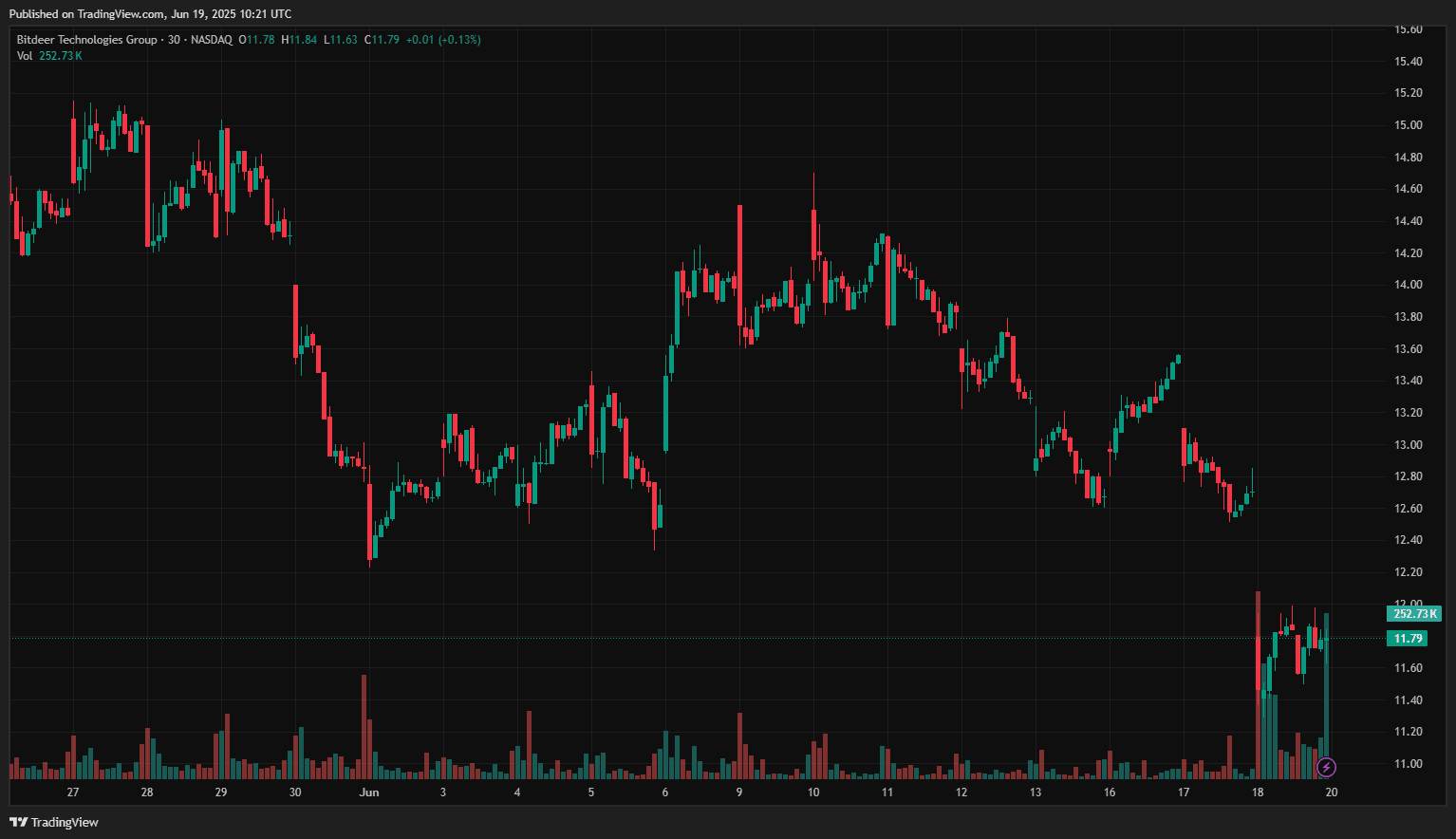Unlike industry giants such as MicroStrategy or Riot Platforms, Bitdeer is not allocating these funds for direct Bitcoin acquisition. Instead, the company specified that $129.6 million will be directed toward risk-free call options, with a further $36.1 million allocated to related settlements. The remainder is set to fund aggressive expansion of data centers, advanced ASIC hardware manufacturing, and broader corporate initiatives—an approach that reflects Bitdeer's strategic focus on infrastructure over speculative crypto buying.
Despite its more conservative stance compared to peers like Marathon Digital Holdings (MARA) and Riot Platforms, Bitdeer has increased its Bitcoin reserves, holding 1,351 BTC valued at approximately $140 million as of early June 2025—more than doubling its position since December 2024. The company reported an 18% rise in Bitcoin production between April and May, yet this operational progress has not shielded its stock from continued selling pressure.
Following the June 17 press release about the bond issuance, Bitdeer's shares (NASDAQ: BTDR) plummeted by 14%. TradingView data indicates the stock slid an additional 7% in the subsequent 24 hours, settling at $11.8 per share at the time of publication. Over the past month, BTDR has retreated 20.3%, deepening its 2025 year-to-date loss to a steep 46.5%. Bitdeer's current market capitalization stands at $2.32 billion.
 Bitcoin mining sector faces mounting pressure. TradingView.
Bitcoin mining sector faces mounting pressure. TradingView.The challenging climate reached a low point in March 2024, when JPMorgan Chase analysts labeled it the "worst month in history for public Bitcoin miners." Experts attribute the negative investor sentiment to Bitdeer's decision to raise debt without linking proceeds to direct crypto asset accumulation, increasing concerns about profitability as operational costs and market uncertainties climb. This strategy also appears at odds with Bitdeer's earlier image as a resilient outlier among mining companies.
For context, Bitcoin mining fee revenues for the industry have recently dropped below 1%, exacerbating financial headwinds for publicly traded miners.

